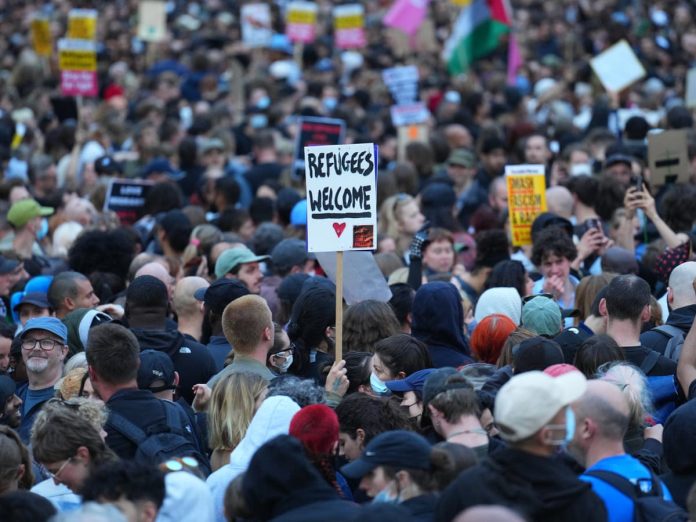12 August 2024: The recent riots across several UK towns and cities, sparked by the tragic knife attack in Southport that claimed the lives of three young girls—Alice Aguiar (9), Bebe King (6), and Elsie Stancombe (7)—have raised urgent questions about the growing influence of far-right extremism and Islamophobia in the country. These events have exposed the deep-seated issues of racism and misinformation, amplified by the unchecked spread of disinformation on social media platforms, reported Al Jazeera.
The UK’s longstanding reputation as a multicultural society is being challenged as far-right ideologies gain traction, not only in Britain but across Europe and other parts of the world, including India. The riots, which began in Southport and quickly spread to cities like Liverpool, London, and Middlesbrough, highlight a disturbing trend of rising xenophobia and anti-Muslim sentiment.
Yasmine Ahmed, Director of Human Rights Watch UK, pointed out that many in the UK are frustrated by declining living standards, cuts to local services, and increasing inequality. This disillusionment is being exploited by racist extremists who use Islamophobic rhetoric to further their agenda. Ahmed emphasized that politicians such as Suella Braverman and Nigel Farage bear some responsibility for the recent violence, given their inflammatory anti-migrant and anti-Muslim statements.
A report by Politico echoed these concerns, noting that Islamophobia has become deeply ingrained in British society. According to a 2019 report by the anti-racist group Hope not Hate, more than a third of Britons believe that Islam poses a threat to the British way of life. This pervasive prejudice has been a key factor in the growth of the far-right and the recent unrest.
Misinformation has played a critical role in fueling the violence. Initial reports falsely claimed that the attacker in Southport was an undocumented Muslim migrant, a narrative that quickly spread on social media. In reality, the suspect, 17-year-old Axel Rudakubana, was born in the UK to Rwandan parents. This baseless claim led to a series of violent attacks on mosques, further inflaming tensions.
The impact of social media in spreading such misinformation cannot be overstated. Platforms like X (formerly Twitter) have become breeding grounds for conspiracy theories and hate speech. Elon Musk, the owner of X, exacerbated the situation by making provocative statements during the riots, even suggesting that “civil war is inevitable” in one of his tweets. The UK government has since promised to hold social media platforms accountable for their role in spreading hateful misinformation.
The recent events in the UK are part of a broader trend of rising far-right extremism and Islamophobia across the West. As political and social divides deepen, extremists are increasingly using misinformation to exploit fears about immigration, crime, and national identity, states Asad Mirza , a New Delhi-based senior commentator on international and strategic affairs, and a media consultant, in one of his articles.
To combat this, the UK government must not only address the immediate violence but also tackle the underlying causes, including social inequality and the prevalence of hateful ideologies. Legislation like the Online Safety Act, which could soon require social media companies to remove illegal content, represents a step in the right direction. However, the challenge remains immense as the threat of far-right extremism continues to grow.




